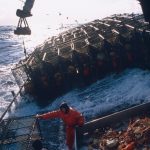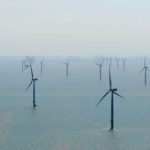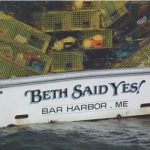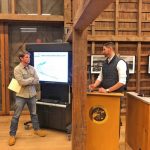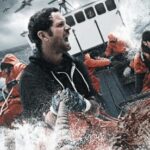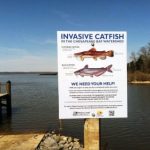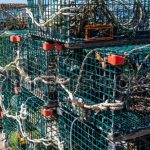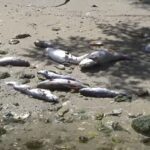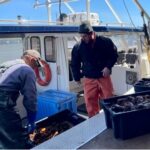Tag Archives: Bristol Bay Native Association
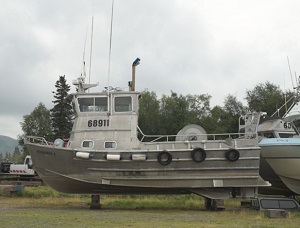
Coronavirus: Bristol Bay community leaders lay out minimum protocol needed to allow salmon season
Leaders of several major community organizations in Bristol Bay have issued a list of minimum protocols they expect to be in place before the commercial salmon fishery can take place this summer. Among other the protocol listed, fishermen and other seasonal workers would undergo a physical exam including a COVID-19 test with a negative result no more than 48 hours before traveling to the region. After arriving in Bristol Bay, the individuals would be transported to a quarantine location and remain in quarantine until a follow-up negative COVID-19 test is confirmed. The leaders listed out other expectations, including weekly health screenings, for the seafood industry to establish as minimum protocol for the 2020 season. >click to read< 11:12
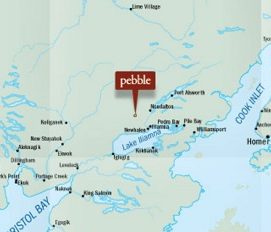
Sen. Murkowski is right: The Army Corps needs to bring science back to Pebble permitting
“If a mine cannot stand on its own without negative impact to the fisheries resource, then that mine should not be permitted.” – Sen. Lisa Murkowski, Sept. 18, 2019. That statement, delivered during Bristol Bay Native Corporation’s annual salmon celebration in Washington, D.C., quickly travelled from the U.S. Capitol all the way back to Bristol Bay, where many of our organizations have been working to expose the U.S. Army Corps of Engineers inadequate environmental review process for Pebble. >click to read< 10:40
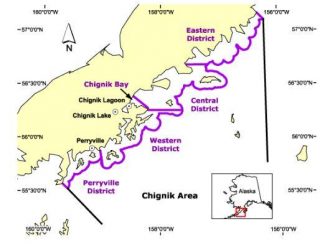
Board of Fisheries declares low Chignik sockeye returns an emergency
Like many Gulf of Alaska communities, far fewer sockeye are returning to the Chignik River than forecasted. Chignik has an early and late run. The combined escapement goal for July 20 is 416,000 sockeye. As of July 18, only 222,000 sockeye had made it upriver to spawn. With no harvestable surplus, the Chignik Management area has not had a commercial fishing opportunity targeting sockeye. Further, some residents say they are voluntarily forgoing subsistence fishing to boost escapement. Audio report, >click to read<13:24
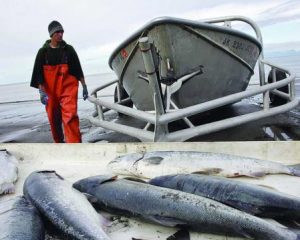
Poor salmon runs result in low harvests, disaster request
Poor salmon returns across the Gulf of Alaska are putting commercial fishing catches far behind the average and prompting a request for a disaster declaration. Commercial fishermen and fisheries managers have been puzzling so far this season as to why the sockeye salmon runs that usually keep boats in the water have been so weak. Copper River fishermen have been frequently closed this season because of poor sockeye counts at the sonar at Miles Lake. As of Wednesday, 320,145 fish had passed the sonar, below the cumulative management objective for that date of 409,931 fish, according to the Alaska Department of Fish and Game’s online fish counts. >click to read<09:09
Coast Guard responds to report of 4 fishing vessels taking on water near Dillingham, Alaska
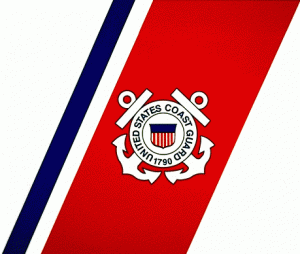 The Coast Guard is responding to a report of four fishing vessels taking on water Monday in vicinity of Nushagak Bay near Dillingham. Coast Guard Sector Anchorage received a report Monday morning that four commercial fishing vessels engaged in salmon fishing began taking on water and became partially submerged in separate incidents. Three good Samaritan vessels and crews recovered all people safely from the four fishing vessels. There is a report of a diesel sheen around one of the fishing vessels that is partially submerged. There are no reports of injuries. “We are working closely with the Alaska Department of Environmental Conservation, Alaska Fish and Game and the Bristol Bay Native Association to mitigate any potential harm to the environment,” said Capt. Sean Mackenzie, Federal On-Scene Coordinator, commander for Sector Anchorage. The cause of the incidents is under investigation. For inquiries related to the salmon fisheries contact Lisa Krebs-Barsis, Aleutians/Western Alaska Unit Supervisor, Prevention, Preparedness and Response Program, ADEC, at 907-269-8487 (office); 907-542-5798 (cell). -USCG-
The Coast Guard is responding to a report of four fishing vessels taking on water Monday in vicinity of Nushagak Bay near Dillingham. Coast Guard Sector Anchorage received a report Monday morning that four commercial fishing vessels engaged in salmon fishing began taking on water and became partially submerged in separate incidents. Three good Samaritan vessels and crews recovered all people safely from the four fishing vessels. There is a report of a diesel sheen around one of the fishing vessels that is partially submerged. There are no reports of injuries. “We are working closely with the Alaska Department of Environmental Conservation, Alaska Fish and Game and the Bristol Bay Native Association to mitigate any potential harm to the environment,” said Capt. Sean Mackenzie, Federal On-Scene Coordinator, commander for Sector Anchorage. The cause of the incidents is under investigation. For inquiries related to the salmon fisheries contact Lisa Krebs-Barsis, Aleutians/Western Alaska Unit Supervisor, Prevention, Preparedness and Response Program, ADEC, at 907-269-8487 (office); 907-542-5798 (cell). -USCG-

































